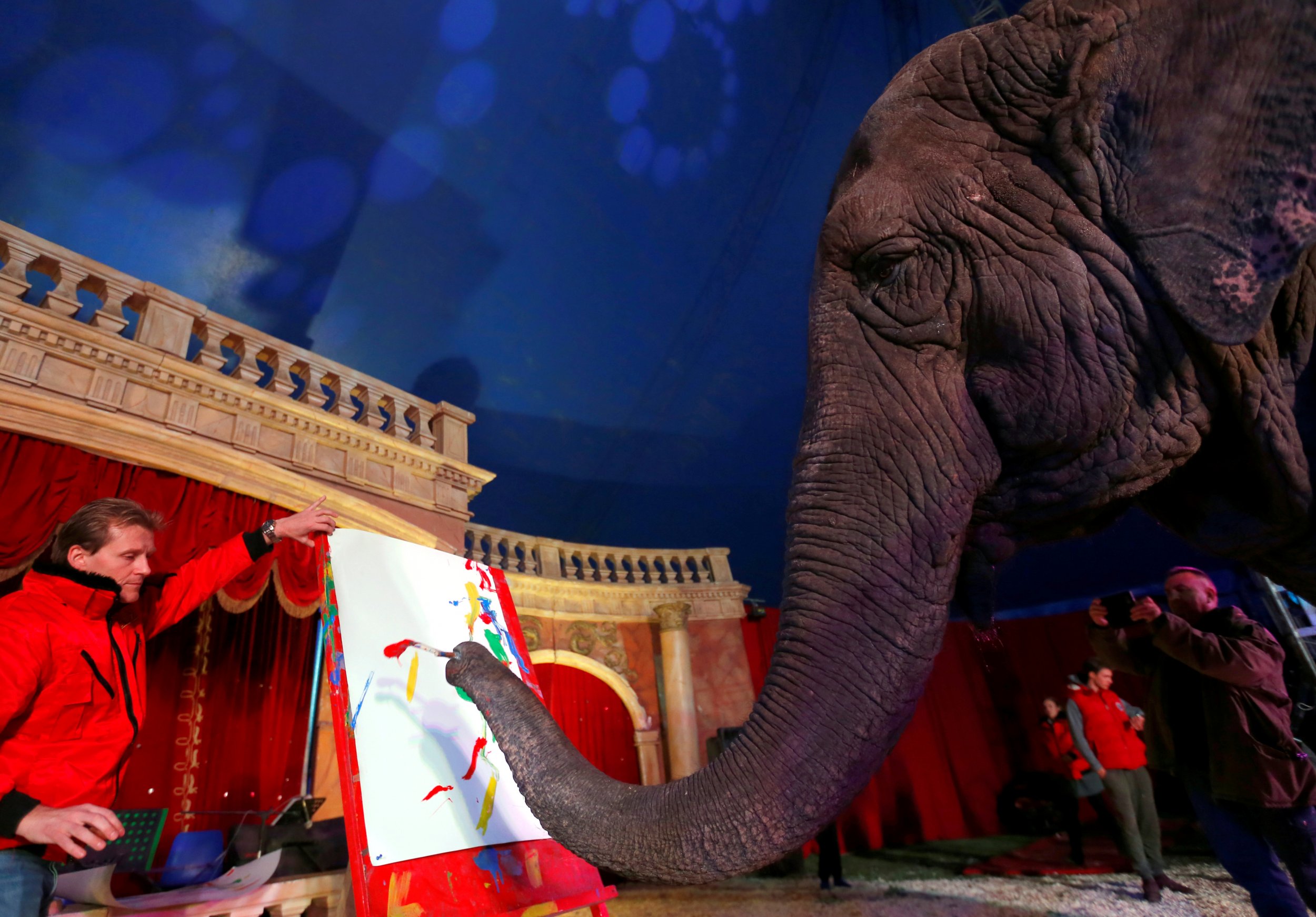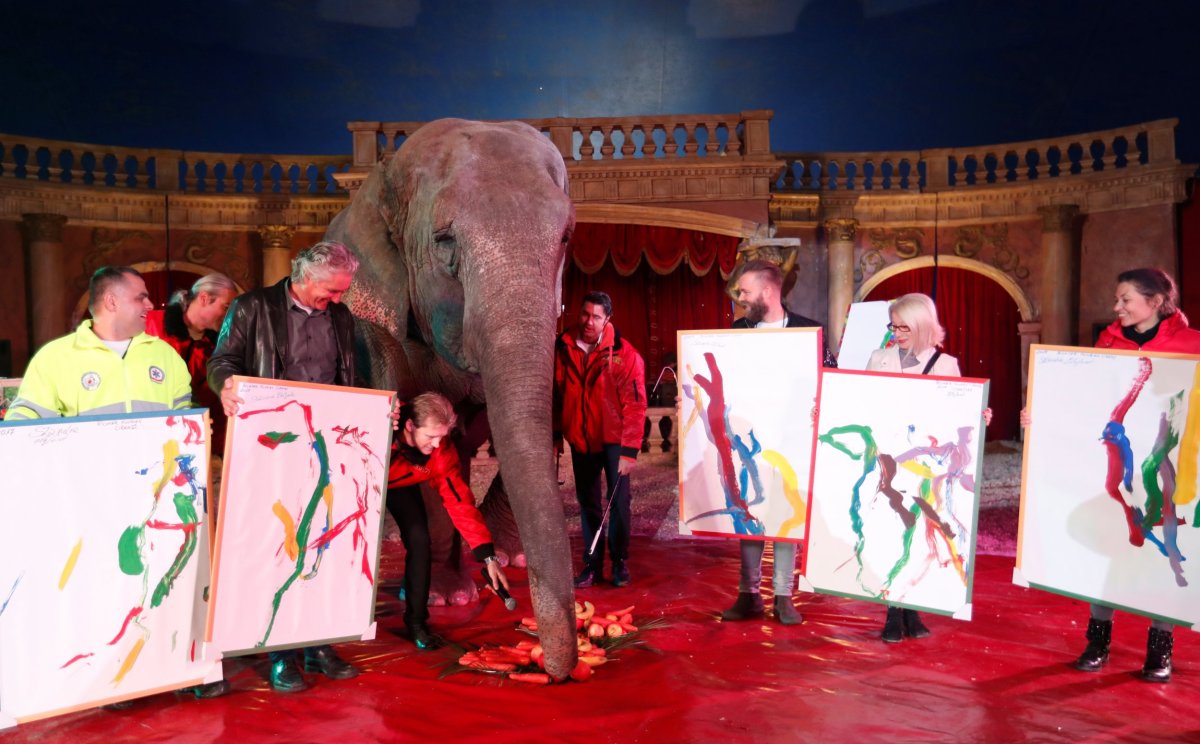
Call this pachyderm "Picasso," because the Asian elephant makes art. Sandra the elephant works at a circus in Hungary, and paints abstracts that have sold at auction for the equivalent of $150 each (40,000 florints).
According to Reuters, Sandra performs for the Florian Richter Circus, which travels but is based in Budapest, Hungary. Each painting includes bold strokes of various colors, not seeming to make any shape in particular.
Florian Richter, who runs the circus, trains animals and performs, claims that Sandra enjoys painting. "I only help her with changing the brushes and putting them into paints but she does the rest by herself more or less," Richter told Reuters.
But elephants painting has been controversial for animal welfare advocates. According to TIME, elephants in Burma are caught, the older ones killed, and the young ones trafficked and beaten to sell to companies in Thailand. Those companies then use the animals to entertain tourists—and sell paintings.
Additionally, keeping large wild animals for performances is falling out of favor with the animal-loving public. Following the success of the film Blackfish, SeaWorld lost revenue and, in California, lost the legal right to breed orcas and have them perform in non-educational shows. Circus company Ringling Brothers and Barnum and Bailey became increasingly hemmed in by statutory regulations banning elephant performances and bullhooks, and eventually decided to retire their performing elephants. They subsequently shut down the entire circus. (Cirque Du Soleil, a human-only circus, is still going strong.)

Animal welfare advocates do sometimes condone certain types of animal attractions, if there is an intent to rescue animals, conserve populations, or educate the public. A major study of wildlife tourism in 2015 graded the different types of attractions involving animals on whether they had positive or negative impacts on animal welfare and conservation. The study found that tourists generally can't tell what is good or bad for animals, but that sanctuaries had positive impacts on animal issues. The report looked favorably on visiting sanctuaries and some zoos, but not riding elephants or playing with predator cubs.
Sandra came to the Florian Richter Circus when she was just a two-year-old calf, and has known Florian Richter for the past 40 years. Reuters did not explain where Sandra came from and how she got into circus life. Elephants continue to rely on their mother's milk as a critical part of their diet past age two, and in the wild, they stay with their mothers for about 16 years, according to PBS.
According to Reuters, the money raised by selling Sandra's paintings will go to an elephant sanctuary in Malaysia.
Uncommon Knowledge
Newsweek is committed to challenging conventional wisdom and finding connections in the search for common ground.
Newsweek is committed to challenging conventional wisdom and finding connections in the search for common ground.
About the writer
Kristin is a science journalist in New York who has lived in DC, Boston, LA, and the SF Bay Area. ... Read more
To read how Newsweek uses AI as a newsroom tool, Click here.








